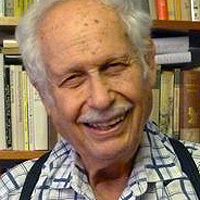
BERLIN – The votes are in, the elections in three eastern German states are over and done with. Political porcelain has been broken, raising questions on what went wrong and, to quote that old Abbott and Costello routine, “Who’s on first?” for the next five years.
In Saxony, the Christian Democrats remained well on top, with 40.2 percent. Their well-spoken minister-president Stanislaw Tillich, 55, a member of a Slavic minority called the Sorbs, deserves more credit than Angela Merkel, national head of his party. But since their CDU again failed to get over half the seats, they must now choose junior partners, either Social Democrats or Greens. Both did miserably at the polls but are now chewing their nails hopefully. As for the LEFT ( DIE LINKE), it retained its long-held second place, but so far behind the winner (18.9) that it has nothing to boast about.
In Brandenburg, the big state surrounding Berlin, the LEFT has been a junior partner with the Social Democrats for the past five years. But alas, the four cabinet seats it occupied as its share in the government did not help it one bit; of those who voted (a record low of 47.9 percent) the largest number gave credit to the Social Democrats for whatever they had liked, and punished the LEFT for what they hadn’t. It lost its second position, and of the 44 electoral districts, of which its direct candidates had won 21 five years ago, it now held on to only a measly four. In one district a leading Left candidate got 6507 votes, losing by exactly two votes! (There will be a recount; in case of an exact tie they will draw lots or flip a coin). The devastating LEFT loss (from 27.2 down to 18.6) means that the fairly new, already popular Social Democratic government leader may drop them as junior partners in favor of the Christian Democrats, now in second place. This means that in Potsdam, Brandenburg’s capital, it is the LEFT that is chewing its nails, while wondering how it could lose so many voters despite what it viewed as successes of its well-meaning cabinet members.
In those two states it had long been clear who would remain top man. But in Thuringia, the future of the top woman has long been in doubt and suspense – and still is. Christine Lieberknecht, 56, a Christian Democrat and native of eastern Weimar, was long in control here, with the Social Democrats as junior partners, the same constellation as in the federal government, where another far better-known East German woman is in command.
But the LEFT is strongest in Thuringia, not way behind her CDU as in neighboring Saxony, and this time it hoped to win Social Democrats and maybe Greens as junior partners, joining to oust the Christians from power here for the first time. This is still possible; they have improved their results of 2009, if only by a measly 0.8 points (to 28.2). Now it is up to the Social Democrats who can, despite their catastrophic vote of only 12.4 percent, join with the Greens to become either the king maker – or the queen keeper, as they must now decide.
If they raise their LEFT hands they would be choosing the very first LEFT state minister-president in all of unified Germany. Bodo Ramelow, 58, a union leader who moved over from West Germany, still hopes to break all precedents and defy all prejudices.
It seems more than likely, however, that the Social Democrats will not risk this bold step, despite the sad electoral results of their rejecting the same possibility in 2009. My prediction: they will prefer to play their right hand and “stay in line”. The last I heard, all sides in Thuringia were biting their nails.
If the Social Democrats do stick with the Christian Democrats the two would hold exactly 46 seats in the legislature, one single seat more than the required majority. If instead the LEFT joins with Social Democrats and Greens to rule the roost, the three would have exactly the same majority of 46 seats – just one more than needed. Pretty shaky either way!
Although results varied from state to state, some things were similar. The Greens, never strong in the east, hung on and won the required five percent three times, but twice just barely. The Free Democrats (FDP), once so important as scale-tippers in German politics, failed to make it anywhere, and are rapidly fading away.
The NDP (National Democrats), the almost openly pro-fascist party, also failed to win five percent anywhere, even in Saxony this time, and are also clearly fading.
Far more important and more alarming is the new party, Alternative for Germany (AfD). In all three of these first runs it won on or about ten percent. And though still vague on many positions, with various inner conflicts, it is sharp and clear on two issues: German nationalist spouting and anti-immigrant attacks. Although these states have the fewest refugees and immigrants, nasty media reporting on crime by “foreigners” has its effect. The new AfD also stressed a few social issues, even praising (but only in East Germany) some good elements in the old GDR. Avoiding all thug-like types in heavy boots and SS tattoos in favor of wise-looking professors and pretty, dainty-looking young ladies, it has been able to attract voters from all other parties, especially those who want somehow to protest, and that included thousands who formerly voted for the LEFT. The AfD seems the big new danger, and although the Christian Democrats officially rejected all coalitions with it, some in that party are looking almost greedily toward a new right-wing bloc.
As for the LEFT, one thing seems all too certain: wherever it has joined the Social Democrats as junior partners in a coalition – Brandenburg has been the third such effort – it got the worst of it and, to use the German phrase, it “lost feathers” – in this case voters. It tried so hard to get along with its senior partners in Brandenburg, and pushed so hard to join up with Social Democrats and Greens in Saxony and Thuringia that, as some members complained, it too often neglected to enter militant fights for and together with those who gained little or nothing from the establishment of “free market capitalism” in East Germany. It is those voters who turned to the AfD to register a confused protest or who refrained from voting altogether – almost half the electorate. Hopes for respectability and cabinet seats, successful or not, may help achieve some reforms and improvements but usually require a general approval of the status quo.
In Saxony, the only LEFT candidate to win a direct mandate was 36 year old Juliane Nagel in Leipzig. She got out into the streets in loud and lively defense of people’s rights, of immigrants, and against neo-Nazis. Her less conformist methods might just serve as a lesson.
Germany has profited greatly from its export successes, often at the expense of those in other countries. But even at home many are suffering, especially children of the jobless, of single mothers, of less highly-skilled immigrants. And no one knows when the next crisis will hit – or how tough and long-lasting it will be. Status quo policies are pleasanter, perhaps, but do not seem very promising, on the state, federal, perhaps even the world level!












Comments